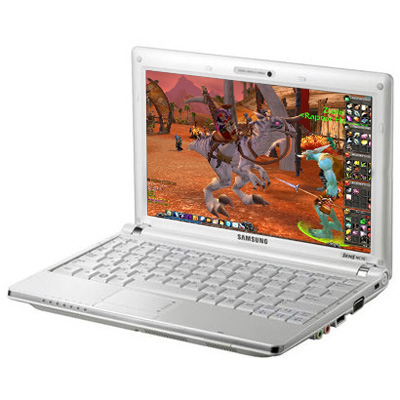U.S. PC Market Wraps Up Worst Year Since 2001
With a brutal fourth quarter, PC vendors concluded a tough year for the industry.
In the U.S. Compared to Q4 2010, PC shipments dropped by 6.7 percent from 19.9 million units to 18.6 million. HP held on to its leading rank, but sold only 4.3 million PCs during the quarter, which was down 25.3 percent from 2010. Dell was down by 4.7 percent to 4.2 million, but Apple beat the trend and climbed by 18 percent to 2.0 million PCs. Acer dropped to number 5 with 1.5 million PCs, behind Toshiba with 1.9 million.
According to IDC, the shortage of hard drives and increasing competition from media tablets impacted the industry, and added to the already fragile economic climate. Globally, the PC industry sold 92.7 million Units, a decline of 0.2 percent year-over-year. For the entire year, U.S. PC sales were down 4.9 percent to 71.3 million units, while global demand climbed by 1.6 percent to 352.4 million PCs.
"In the United States, market saturation and the economic environment continue to weigh considerably on consumer demand. However, the market is awaiting new products and technologies, promising a new refresh cycle starting in 3Q12 and beyond with a return to positive growth in the mid-term," said David Daoud, research director, Personal Computing at IDC. According to IDC, 2011 was, behind 2001, the "second worst year in history" for the U.S. market.
In contrast, Europe and Asia/Pacfic performed "a little stronger" than expected, the market research firm said.
For the first quarter of this year, IDC expects the market to slow even more as the impact of the hard drive shortage is now felt on a broad basis. However, as the industry bounces back, PC makers are forecast to gain about 15 percent in shipments by the fourth quarter. 2012 shipments are currently forecast at 371 million, an increase of 5.4 percent over 2011. 2013 is predicted to achieve growth "in high teens" during the first half of the year.
Get Tom's Hardware's best news and in-depth reviews, straight to your inbox.

Douglas Perry was a freelance writer for Tom's Hardware covering semiconductors, storage technology, quantum computing, and processor power delivery. He has authored several books and is currently an editor for The Oregonian/OregonLive.
-
Goldengoose People are also building their own desktops more and more now (or getting a friend to build it for them) - Could be interesting to compare these results to those of CPU+motherboards etc etc and see what sort of sales they are pulling in.Reply -
halls I would be really curious to see how sales of individual parts have changed over the years. Can't say I'm too surprised by this news, I know a lot of people who are jumping on the tablet bandwagon.Reply -
JohnnyLucky GoldengoosePeople are also building their own desktops more and more now (or getting a friend to build it for them) - Could be interesting to compare these results to those of CPU+motherboards etc etc and see what sort of sales they are pulling in.Reply
We posted at the same time. Last figures I saw indicate DIY pc's are a very very tiny drop in a great big bucket.
-
There is no innovation to drive PC sales. I have had the same pc for 5 years now, and see no need to upgrade any time soon. The are no killer-apps to drive sales like we had in the 90's.Reply
-
warezme since the majority of people are to stupid to do more than surf the web and tweet, yea it would make sense that phones and tablets would sell more. Plus you can't spit in any direction without hitting a news commentator talking about this tablet or that smartphone. I'm tired of hearing about both of them and have no desire to own either. The only reason my phone is smart is because you can't hardly buy one that isn't anymore. There is no smartphone or tablet that can do what a real computer can do but dumb people don't realize that.Reply -
Onus PC hardware is now so powerful that, except for the tiny fraction of PC users who are hardcore gamers or independent design or video mavens, there is no rational need to upgrade a whole PC every year any more; even the gamers can often be satisfied with a GPU (and maybe PSU) upgrade. Even less expensive mobos now include solid caps and other features for longevity.Reply
-
Tmanishere Good: Won't have to keep upgrading the PC as often.Reply
Bad: The technological leap for PC will be very slow or expensive because of low demand. -
stormblade42 The majority of people just want to surf the web and watch Youtube. How much PC do they reallyneed for that if they have one that is already 2-4 years old, maybe even longer? They have no reason to upgrade to today's or tomorrow's PC to do that. All they need is broadband for a decent experience.Reply
